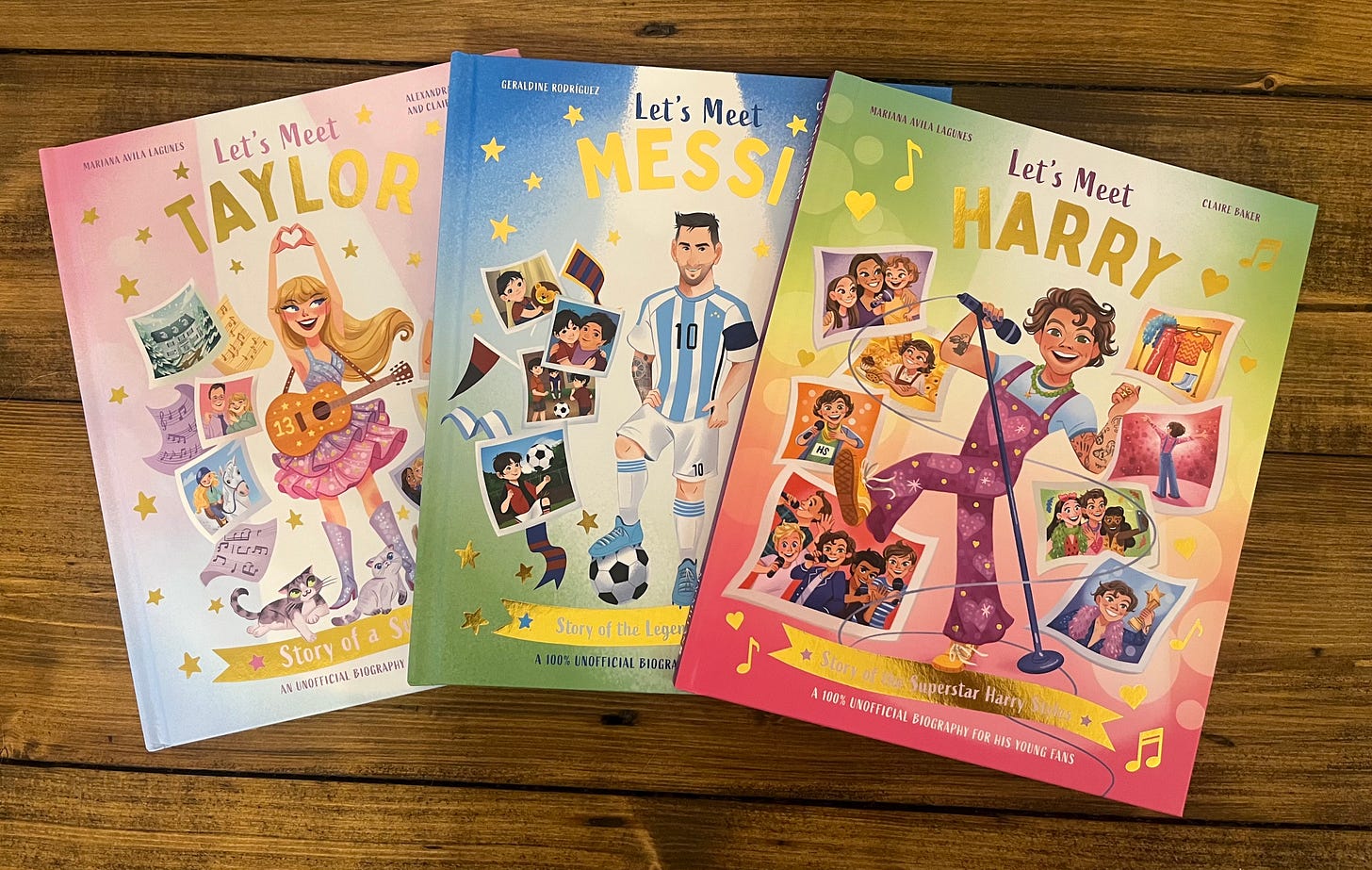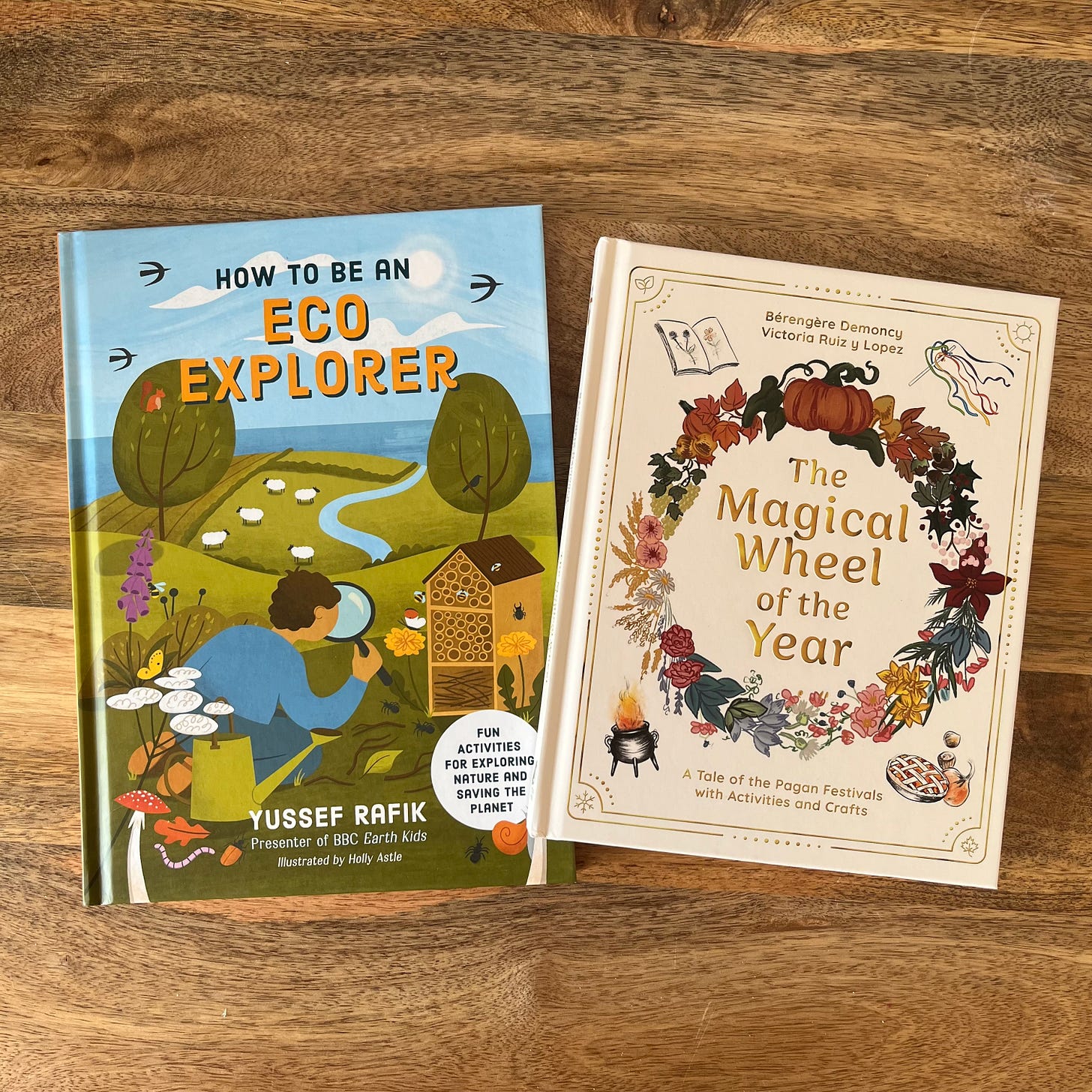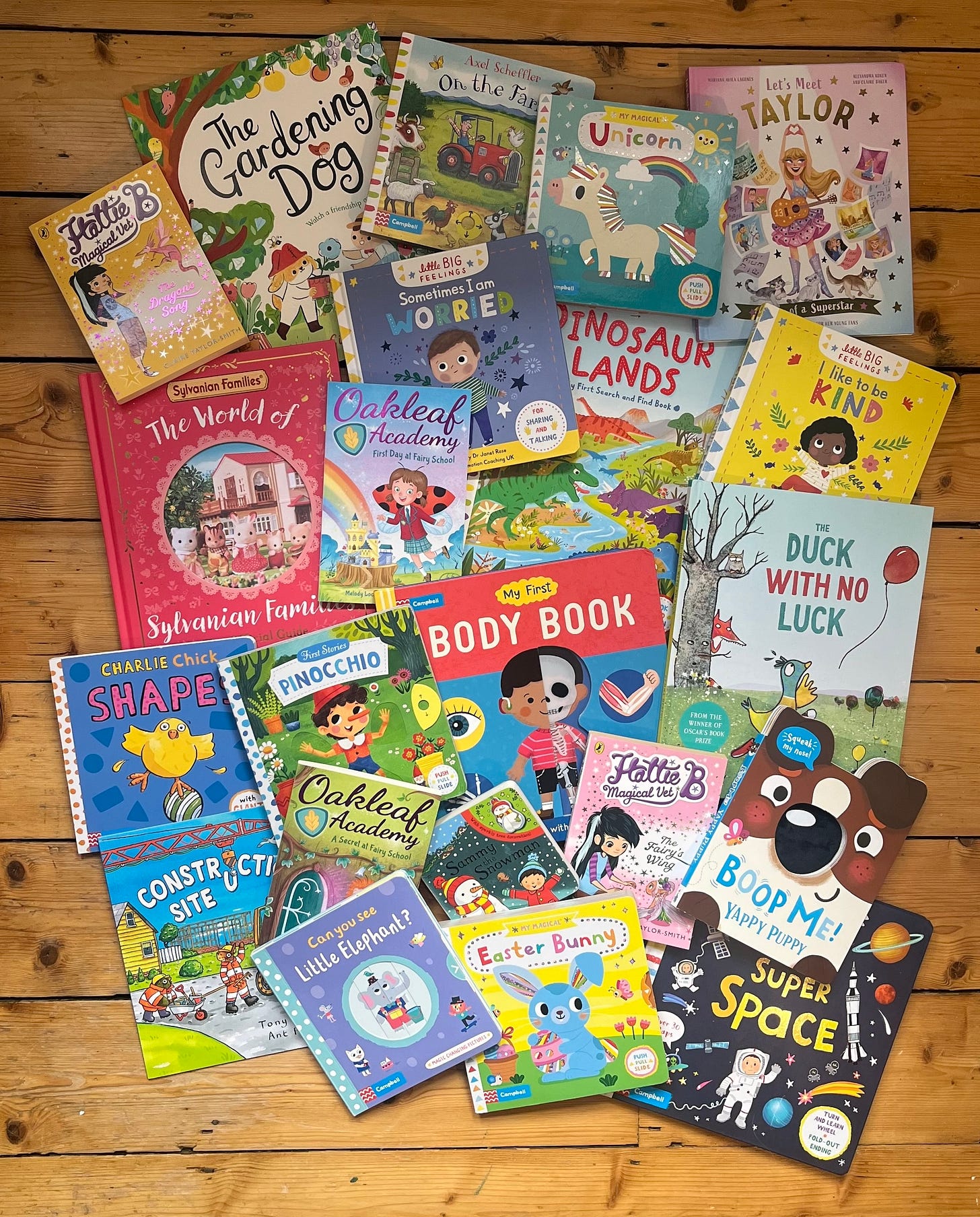What does a 30-year career in publishing look like?
Claire Baker, freelance writer and editor, shares her perspective.
Claire Baker is a writer and editor for children who creates all kinds of books for all kinds of children and especially loves writing in rhyme. She is experienced in fiction, non-fiction, novelty, brands, licensed properties, magazines and partworks and is a qualified primary school teacher. Claire lives in London with her family plus three cats and one big dog.
Claire, thank you so much for agreeing to answer some questions. I’ve been really excited to have this chat with you!
A 30-year career is impressive, to say the least. To kick things off, can you share a bit about how you started your publishing career?
My first job was at a small independent publisher called Two-Can. After university, I wrote to every children’s publisher in the country asking if I could come in for some work experience and the Creative Director at Two-Can offered me two weeks working on a children’s partwork called Farthing Wood Friends. A few weeks after that, they offered me a permanent job as an Assistant Editor and I stayed there for two years in the end, working on partworks, magazines and illustrated non-fiction.
For anyone who doesn’t know, can you quickly touch on what a partwork is?
A partwork is a weekly or monthly collectable magazine, usually bought on subscription and often with a ‘free’ covermounted gift that can be built into a set – for example, when I worked on an Angelina Ballerina partwork you got a plush Angelina Mouse toy with issue 1, then a new outfit to dress it in with every subsequent issue.
Your experience with Two-Can is the definition of making the most of an opportunity – making a good impression in just two weeks is no small thing. At that moment in time, what would you say were the best parts of working in the publishing industry?
Two-Can was a very creative environment with a mostly young staff – it was also based in the emerging hip Shoreditch area so there was a real buzz around the office, and a great social life emerged from it too – back in the days when everyone was in the office every day it was very easy to socialise regularly after work! I loved the chance I got to work on lots of different formats and to be involved in developing new titles right from the start, and because it was a relatively small company I worked closely with all the different departments and saw how they all fitted together to create the finished product and get it into the market. It’s where I first experienced that joy of holding a first printed copy of something you helped to create – a feeling that never gets old!
What led to your decision to go freelance?
After I left Two-Can I worked at BBC Worldwide, editing children’s magazines for seven years until my first child was born. Sadly, opportunities for flexible working around children were hard to negotiate in those days and I left a few months after returning from maternity leave. I then returned to work with my previous Two-Can colleagues, now a part of John Brown Publishing. The Creative Director there had an unusually forward-thinking approach to work/life balance and allowed me to work as a freelancer so that I could do one day in the office and two at home (this being pre-covid hybrid working). After my second child was born, I left John Brown Junior and began freelancing for a variety of publishers, and apart from a five year part-time in-house stint at Campbell Books (PanMacmillan) when my three children were at school, I’ve done that ever since.
Given how comparatively flexible work life can be for some of us now, it baffles me that part-time hours and home-working were luxuries that just weren’t afforded to most people, basically until the pandemic forced us to do things differently. It’s fair to say that the industry lost a lot of talent because of this, and that talent was mostly women. But you were able to go freelance when doing so was a really hard thing to do. By that I mean that, while it’s not easy now, it is easier for many reasons - not least of all because we can be multi-hyphenates, which is something that the industry had struggled with historically, and publishing houses are generally using freelancers much, much more than they did before. But I’m conscious that, when you first became a freelancer, the industry was very different – and it was less common back then for someone to even go freelance. At the time, what were the challenges and advantages of taking that route?
I’m not sure it was uncommon in the mid 2000s when I first went freelance – but a lot of freelancers were women juggling kids rather than people choosing to do it to allow them to split their time or income streams. It was definitely more of a challenge to find work without social media and online networking like LinkedIn, with a greater reliance on connections/recommendations and knowing who to contact – and being brave enough to send that email! The technology was also challenging, with files having to be transferred through long-winded and cumbersome means (no quickly pulling files off shared servers in those days) and no digital proofs. The advantage for me was juggling work with caring for three small children but I missed the daily interaction with colleagues – and still do!

You’ve hit the nail on the head there in terms of people choosing to go freelance - that’s certainly something I’ve seen more of (and done myself!). And while social media has its many downsides, it really is fantastic for networking, like you say. That’s one interesting shift that’s occurred in more recent years. What other ways has the industry changed over the years you’ve worked in it – I’d love to know both positive and negative shifts you’ve noticed.
The biggest changes I’ve seen have been flexibility and technology. Despite it being such a female dominated industry, when I had my children in the 2000s, there was much less opportunity to cut down on work days or work from home – and it severely dented your chances of career progression if you did either. Now I see women negotiating much better work/life balances post maternity leave and still gaining promotions.
This is probably tied in with the second biggest change, the advances in technology: the ability to access everything from home, to look at digital proofs and so on. Everything is so much quicker than in the days when proofs, chromalins and ozalids arrived by courier to be marked up by hand, and all artwork had to be scanned (often in several sections) and artworked at the repro house.
In terms of workforce, I’ve seen an admittedly slow but positive move towards more diverse recruitment, but on the flip side entry level jobs now often require a level of experience and/or further qualifications which put them out of the reach of many candidates, whatever their background. I had neither experience nor a post-grad publishing qualification when Two-Can took a chance on me after university, and I learnt everything on the job, but I’m not sure I’d get that opportunity now.
I also feel that salaries and freelance rates have failed to move with the times – I’ve been offered day rates now not much higher than what I was offering freelancers myself 20 odd years ago! Also publishers seem more cautious now, with creativity sometimes stifled by the need to meet margins and the avoidance of risk.
I totally agree with you here. And when it comes to technology, it’s a double-edged sword, isn’t it. Being able to do things more quickly makes good business sense, but the business doesn’t always adequately consider the people doing all of the work so quickly (and, more specifically, their wellbeing), and that’s another area that needs to be looked at (and, dare I say, overhauled).
Lastly, we’re standing at a crossroad in terms of AI, copyright and the other issues currently plaguing the industry. What do you think (or hope) the future of publishing might look like?
I hope that AI will be used positively, to enhance the practice of publishing, but fear it won’t! At the moment I’m hanging on to the hope that AI can’t do a better job than an experienced writer, editor or illustrator, for example, but I do worry that won’t always be the case as the technology is developed and improved; in my experience publishers are always looking at ways to save money, so I suspect not having to pay fees to professionals like me will be an attractive proposition if AI can take our place. Although I generally work on a flat non-royalty fee and don’t own the copyright on my projects, it’s also very depressing to see AI companies mining the work of writers with a complete disregard for copyright or payment. Freelancing is always a bit feast or famine but, talking to other freelancers in my field, it seems that work is very thin on the ground for nearly everyone at the moment and I can’t help worrying that there is some kind of shift taking place in publishing which isn’t just about financial caution. I hope publishers will find a way to navigate through all the threats they face but they will have to be constantly on top of it and probably revise their traditional models too; in many ways it’s still quite old-fashioned in the way that books are acquired and I’m not sure everyone will continue to accept this now that there are other avenues opening up to them.







